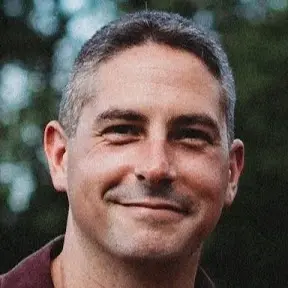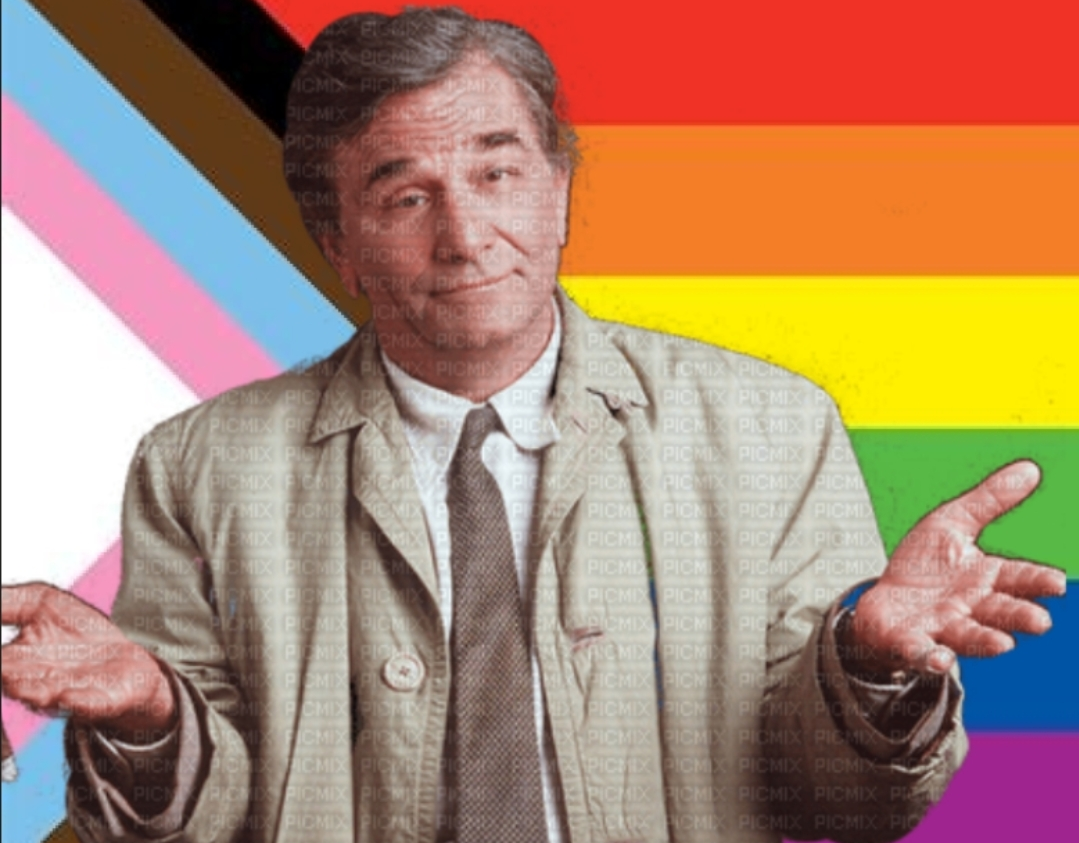My reason for posting this question is to get some perspective, since I don’t live further west than Indiana.
Indiana has a lot of conservative tendencies, usually opposes progressive policies, and a little old school bigotry in the form of religion based disagreement with people’s life styles, like letter community.
From an outsiders perspective, TX, OK, MO etc are even more extreme.
This permalink above from a comment from a person referencing recently proposed legislation against letter community people specifically, though there’s tons of examples of bigotry like the school principal getting sued for discrimination due to a kid’s hair (black hair).
We know Lemmy is a bit more populated with left than right thinkers, but regardless, what’s going on in these western plains states? Is it as bad as it looks?
Do you personally know some sweet old church ladies who ‘hate the gays because they’ll going to hell’ or are there just more extreme law makers being elected that don’t represent the majority?
EDIT: tried to fix link to a conversation instead of a login page.
In Iowa, the governor is strangely borderline. She is very accepting and even encouraging of immigrant migration to Iowa, but believes there is an illegal immigration crisis. She believes in increasing both STEM education and Social Emotional Learning in schools, but also has put it into law that a teacher who finds out a student as part of the LGBTQ+ community (or even asks to use a name that’s not in their cumulative file) MUST tell the parents. She’s repeatedly refused federal aid for school food programs and social services. She’s highly against medical marijuana except for the most extreme cases (not eve glaucoma) - to the extent of vetoing a law passed by the legislature to expand it to more cases - even as every state around us goes full recreational. She’s restricted abortion significantly. We have a surplus budget but our roads are shit. We have a banned books list, but it’s not as extreme as other states.
At the local level, things are different depending on where you live. My school district is great, very inclusive and accepting. There are many LGBTQ+ kids, open and still somewhat closeted, but not much pushback about it.
She’s repeatedly refused federal aid for school food programs and social services.
I’m pretty open minded, but what could possibly be the rational behind this shit? I guess the money comes with strings attached?
I don’t know, but I think it has something to do with “if you take federal money, the state has to match it” maybe. She always brags we have a budget surplus, so I don’t think money is a problem.
@LinkOpensChest_wav@midwest.social @Pandantic@midwest.social How is the general population?
In the midwest, we are called the Bible belt. We are also accused of being the biggest bigots, with terms like neo Christianity or religio-fascists. I like to think/pretend that law makers are a little more extreme or loud than the general population, but they still pander to a base that elects them, so that negates my idea to some extent. Maybe the process of legislating looses nuance and empathy because it’s difficult to do that in law? I’m not sure. Maybe I have an unrealistically rosy view of the region. I’m not in a group that would feel oppression or hatred for who I am unless I go to places with people who do, then I get labeled or target by those because I look like their oppressors (which is ironic, but understandable).
Indiana had the religious freedom act, which was a huge black eye. I could write a huge rant on cake lady. The short version is my refusal to accept her ideas as Christian/religion based, not mine anyway. IMO, Jesus never treated anyone like shit other than the Pharisees, whom he constantly schooled for ‘missing the point’. I think she was just a plain old fashion bigot, and I wish she would have just said “I don’t like gay people”. I wouldn’t have to agree, but at least she’d be honest and take the proper heat for it.
Unfortunately, I know there’s plenty of criticism for the Midwest, conservative region that probably has some roots in religion, but I’m not sure if it’s just because of religion or the negative manipulation of it. Example: Islam is inherently bad and violent, or it was corrupted to manipulate people to violence and hate?
I’m in one of the marginalized groups, being gay and married to a first-gen immigrant who also has trans people in my family and neighbors , family, friends who don’t speak English and/or are non-Christian (Muslims, atheists).
It’s not like everyone here is bad, but the people who elect these bigots know exactly what they stand for, and they support it.
Also, South Dakota has a really problematic history, so it’s not like all of this has just come out of left field.
And I know not all religious people are hateful, so I try not to characterize them that way. One of the first people I felt comfortable coming out to was a Muslim woman, and we (my husband and I) literally are friends with some clergy who happen to be some of the most outspoken LGBTQIA+ allies in our community imo.
But anyone who supports Republicans here knows exactly what they’re getting, and as I’ve said in many cases wish people like Noem would go even further to marginalize and oppress these marginalized groups. In fact, I used to try to befriend Republicans, but in every case they ended up disclosing to me some extremely fucked up goals, and I can’t legitimize their worldview by having anything to do with them beyond what my work requires.
I’ll start by declaring my heavy bias, as someone who dearly loves the Plains but moved east, not only because of politics, but who could never return home in part because of politics.
Many Midwesterners are religious and most oppose pregnancy termination. Some think it should be legal but still discouraged socially, but the default position is “it’s immoral” and the default position within that is “and should be illegal”. To this mindset, which I used to share, it really is murder. Not “equivalent to”, but the thing itself.
Now it used to be that South Dakotants voted mostly on local issues locally and for whoever kept the agricultural subsidies rolling in federally. We had D governors and Tom Daschle was the Senate Democratic leader.
But as the religious right got further and further in bed with the GOP at the national level, the RNC got better at manipulating religious voters. And it wasn’t hard to notice that a lot of us would forego a bit of self interest for the greater good, like outlawing literal murder (to our minds). And so the national money started rolling in, hammering the issue of reproductive healthcare further and further into every race, especially those with powerful D incumbents like Daschle. I had moved away for college by that point but by the time I graduated SD was blood, and I mean blood, red.
(Caveat: unlike most states, these days SD is solid red in urban areas and bluish out in the lower-population rural areas. Can you guess why?)
From there, the ground was fertile for the Tea Party to sow the seeds of populism that our recent President so ably reaped.
So it’s your belief or feeling that the major motivator and shift in politics related to religion and acceptance was over a pivotal issue of abortion? In this SDs case, the abortion issue opened the door for trading values from one party to the devotion to another?
Would you say that shift was in spite of not everyone being fully committed to the rest of the GOP/R’s values? You suggested they overlook all the things they don’t generally agree with, or as much with, just to support the abortion ban?
It was and is absolutely a wedge issue that allowed the GOP to purge a lot of democratic incumbents and candidates from office two decades ago, and keep them unpalatable today. Once people are already “in the tent” it’s easier to keep them there, and to turn them further towards your point of view.
Now, don’t misunderstand: South Dakota was already conservative, both politically and socially. But that translated to electing conservative Democrats as well as conservative Republicans. I’m talking not so much about a change in policy preference as a rise in party “purity”.
The cities are liberal, but there’s a lot of rural communities that have never had to deal with people before.
The northeast is known for being kind but not nice. Four New Yorkers will carry your luggage down the subway stairs and never look at you once. The south is known for being nice, but not kind. That’s where the poisoned sweet tea comes from. The west is known for neither, if you have car trouble, the best you can hope for in Portland is being ignored. The Midwest is known for being both nice and kind, where neighbors will shovel you out and wish you a nice day before going on to the next car.
Full agree. But I’ll add something to the Midwest description, we’re nice, kind, and if we’ve never met your kind before beware. Midwesterners will fight tooth and nail for trans people when we know the neighbor kid who turned out trans, but if we don’t we’ll fucking ban that shit because it’s clearly a mental illness that must be stopped before it spreads to here. We’re similar on racial issues, gay rights, etc. And I’m not fucking around, I know people who weren’t uncomfortable towards middle eastern people in the 00s, but got so uncomfortable around black people it was real bad, and exposure was the crux of it. We’re so community focused that we fall into deep tribalism.
I tend to agree with the nice and kind part of Midwest, with exception that it seems like we’re becoming more hard-line against things people call woke or alternate life styles.
I’m using a universal ‘we’ since, and I think you’re right - there’s a difference between urban city thinking and rural community thinking.
I have a whole theory about the city thinking and rural thinking having to due with ownership or property, but that’s a whole other thing…
I don’t know if it’s property so much as just being around and having to live around so many different people. Like, if I take the bus, I’ll probably pass a hundred different folks to and from work, and only two are going to annoy me.
But, it’s a lot easier to be insular if I live in a small town with 300 people, and can easily assume all my problems are someone else’s fault. I’ll see three new people a week when the tourists stop at the gas station.





